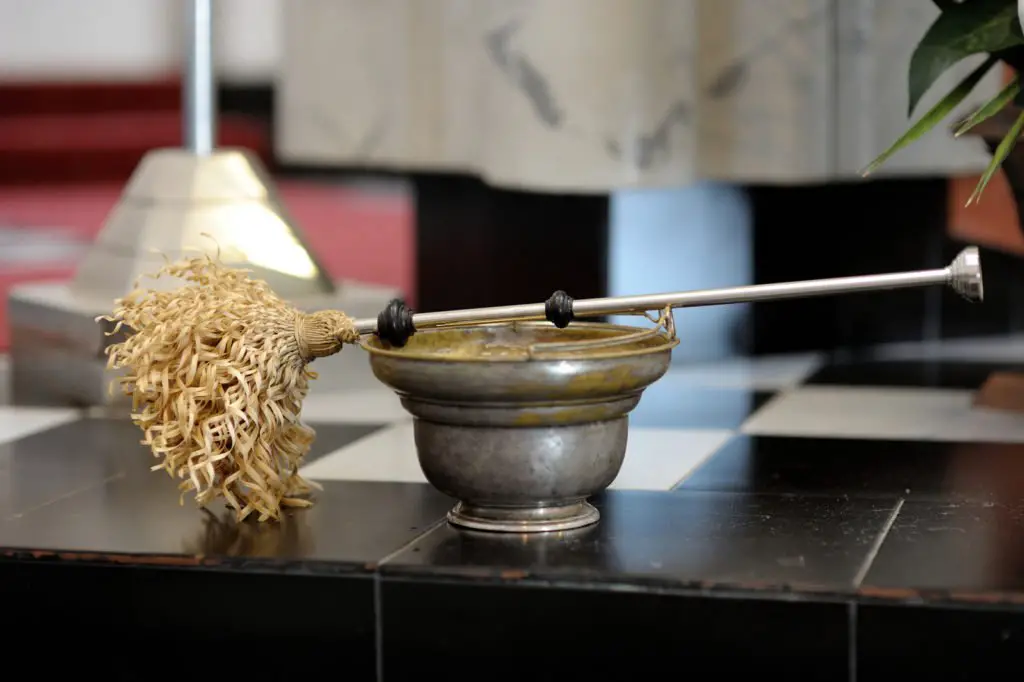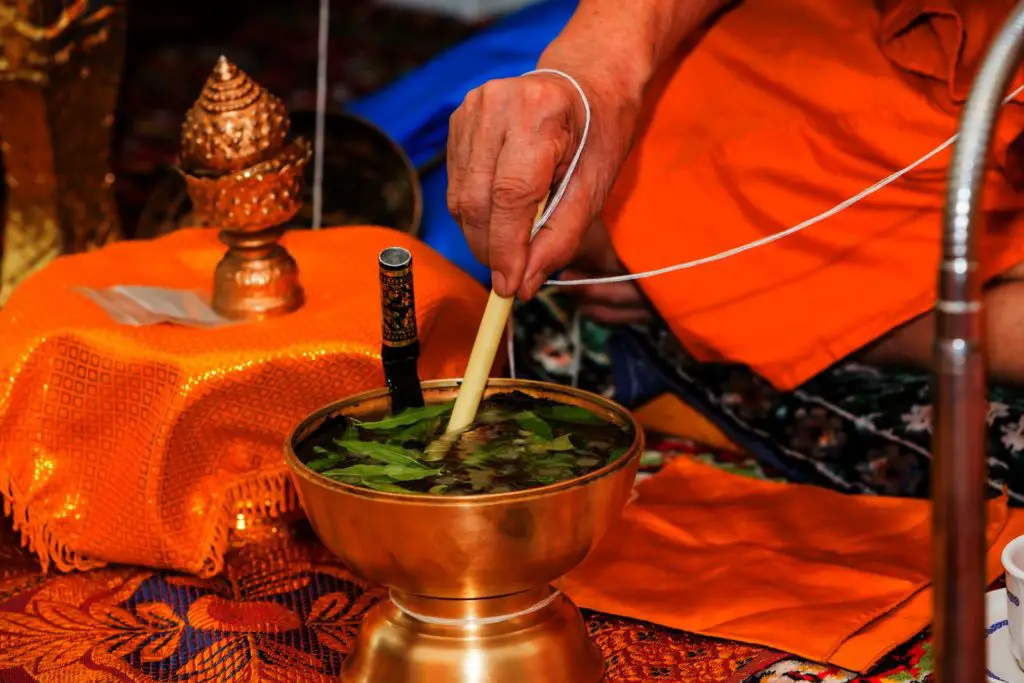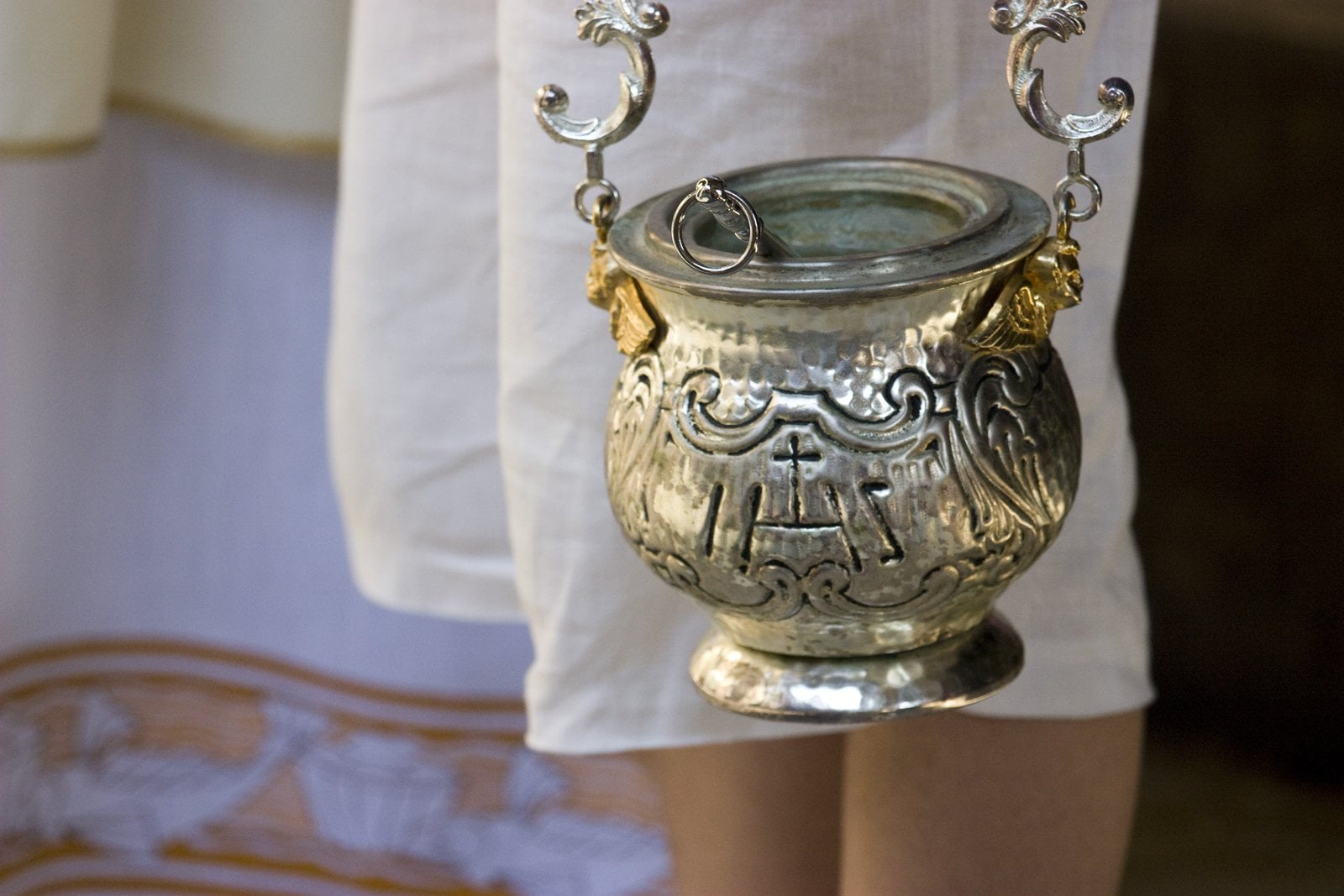For centuries, holy water has been used to ward off evil spirits. It is often sprinkled on people to bless them before entering a church or temple. Similarly, it is applied to the hands of someone who is sick to heal them. Holy water can also be used for bathing and as an ingredient in certain rituals.
The process for making holy water is a little complex and involves obtaining Holy Water from the church, salt, white wine vinegar, and baking soda. The ingredients are combined in a clear container and stirred until they dissolve together.
Afterward, the mixture should be stored in another container to prevent it from spilling out. You can use this holy water to bless or purify objects such as your home by sprinkling it on them with an aspergillum (which is just a fancy name for a spoon).
This article will walk you through making your holy water using various household items that you likely already have at home!
The Meaning Of Holy Water
Holy water is simply a pure type of water that priests or religious people have blessed. It is considered the most ancient and spiritually significant thing you can easily discover in a holy site.
Holy water is regarded in Hinduism as purifying, giving divine life, and wiping out evil. Throughout history, many religious people have employed this natural symbol of purification to cleanse both ritual and moral impurity.
It’s also customary to sprinkle it on everything given to or around the leaf or plate in which the meal is consumed in Hinduism.
Different Types Of Holy Water
Holy Water That Are Specifically Based On Origin
- Blessed by location – Holy water can be produced in a single location or by traveling to different places on the earth. Each place will have different qualities; some are blessed more than others, depending upon how close they are to God.
- Blessed by Special days – Holy water can also be made on specific days considered important to religion. There are certain days where the power of prayer is more potent, and this can be harnessed to make holy water.
- For Pagans – Pagan Holy water can also be made by using natural elements found in the earth. This might include things like rain, snow, or even spring water.
Holy Water That Are Specifically Based On Religion
Christianity
In Christian faiths, holy water is often sprinkled on people as a sign of blessing. It’s also used as a special ingredient within rituals. Many Christians sprinkle their baby with this water before naming it or baptizing them into the faith.

In some sects, holy water is only made using running water from springs and streams rather than standing water from rivers, ponds, or lakes. Holy water from springs is considered very powerful and comes directly from God.
The use of holy water in churches varies, with Roman Catholicism, Lutheran synods, Eastern Orthodoxy, Anglicanism, and many more.
Hinduism
In Hinduism, holy water is used to purify both people and objects. It’s often sprinkled on people before they eat as a way of cleansing them.
Holy water is also used in religious ceremonies and rituals. Some Hindus even bathe in it as a means of spiritual purification.
Islam
The Zamzam water is holy in the Islamic religion, coming from the well of Zamzam at Masjid al-Haram in Saudi Arabia. It is frequently utilized as a spiritual and physical healing agent. It is also beneficial for the pregnant woman on her child’s physical characteristics, such as locomotion and acetylcholinesterase (AChE).
Buddhism
In Buddhism, the “lustral water” is used as a blessing and a symbol of protection. This lustral water may be created in a ceremony where a candle burns over water and extinguishes. It represents earth’s fundamental elements: fire, air, and earth.
Holy water accompanies many forms of religious practices. One such practice is blessing and consecrating Buddhist images, altars, and other ritualistic items using holy water. It’s also used in cleansing rituals during death and dying practices.
Sikhism
In Sikhism, holy water is called “Amrit” and is used as a ceremonial drink during baptism. It is also sprinkled on people’s heads as a sign of blessings. Some Sikhs carry a bottle of Amrit Sarovar water for sick friends and relatives.

Tips To Make Holy Water At Home
Before we dive in, keep in mind that holy water is not the same as regular old tap water. This means it has special properties and should be treated as sacred. If you would like to make holy water at home, here are a few tips to follow:
- Start by choosing a pure and clean water source such as rainwater, snow, or spring water.
- Add some flowers or plants that are considered to be sacred in your religion.
- Include herbs that are known for their healing properties.
- If you’re using water from a natural source, boil it before use.
- If you’re using tap water, allow it to sit out in the sun or moonlight for a few hours before use.
- Chant prayers or affirmations while making your holy water.
Making your own holy water is a great way to have a personal connection with your faith. In some religions, it is even considered a sacrament. Try your best to add in some flowers and herbs that are thought of as sacred within your religion so you can infuse the water with love and positive energy.
Ingredients Needed To Make Holy Water
You will need the following ingredients to make your own holy water:
- A clean and sterilized container with a tight-fitting lid, such as an empty flask or bottle
- Rainwater, snow, or spring water – all of which are considered to be pure and blessed. If you’re using tap water, it needs to sit out in the sun or moonlight first.
- Bowel fresh or dried flowers, natural herbs, and other items that are thought to be sacred.
- Chants, affirmations, or prayers to recite while making the holy water.
NOTE: The type of water they come from is unimportant; however, it is preferable to get it from natural resources like rivers or streams.
